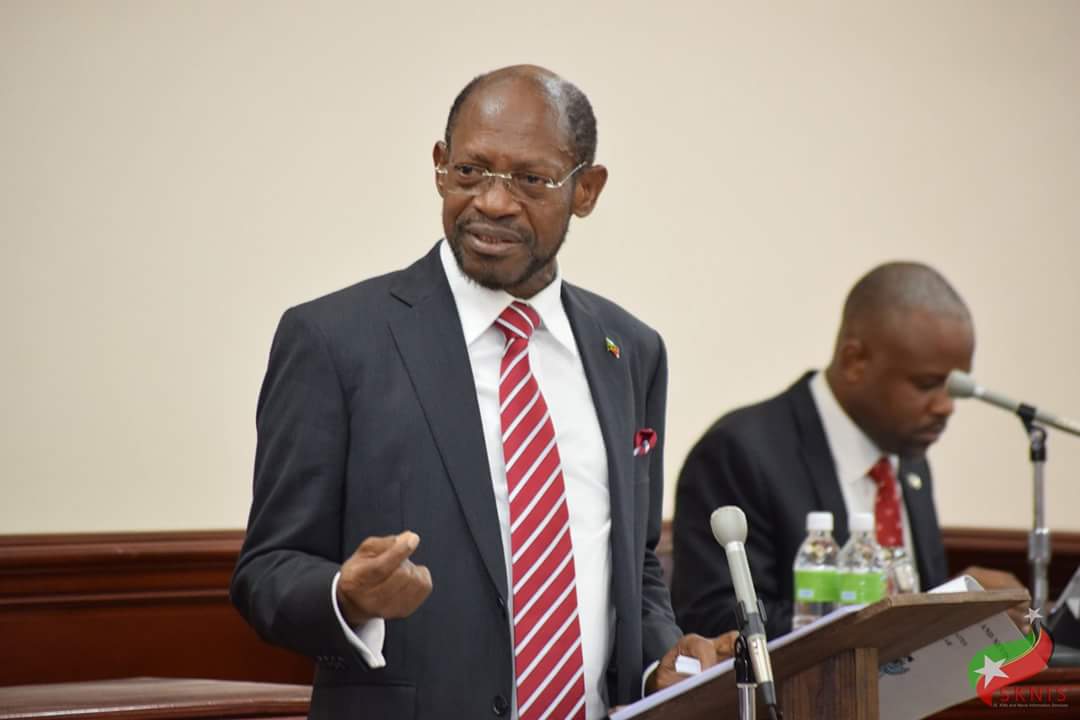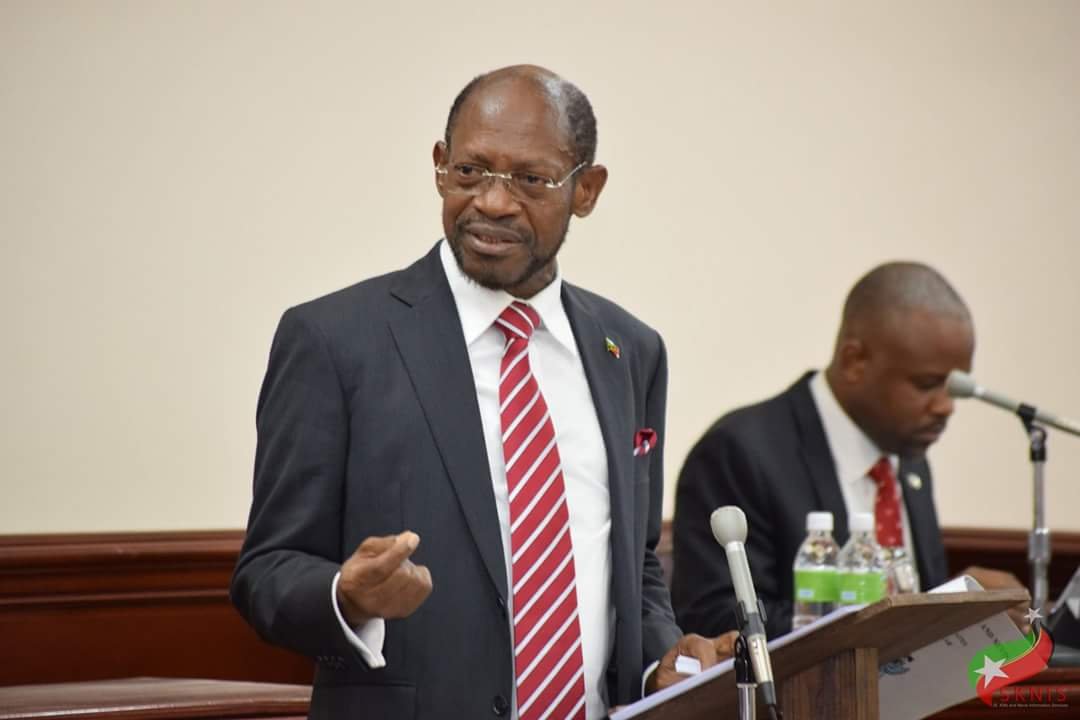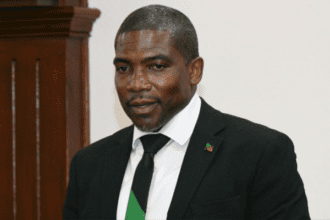Photo of Leader of the Opposition, the Rt. Hon. Dr. Denzil L. Douglas
By: E. Williams
Basseterre, St. Kitts, December 8, 2017 – Leader of the Opposition in St. Kitts and Nevis, the Right Hon. Dr. Denzil L, Douglas says the 2018 Budget presented by Prime Minister and Minister of Finance Dr. the Hon. Timothy Harris on Wednesday lacks credibility.
He told parliamentarians and the Nation Thursday he finds evidence that the budget process is not being taken seriously, that the numbers are being pulled out of a hat and under these circumstances one is forced to conclude that there was some tampering to mislead the people
“It appears that there was no serious attempt to present realistic and true figures to this Honourable House. Mr. Speaker, Recurrent Revenue is the lynchpin on which the entire budget depends. Recurrent revenue provides most of the funds required for the Government of St. Kitts and Nevis to finance its operations. Unfortunately, the figures presented for Recurrent Revenue in this year’s budget make no sense whatsoever,” said Dr. Douglas, who was rudely interrupted several times by Prime Minister Harris on points of order. On one occasion the Speaker Hon. Michael Perkins said he will give Harris as long as he wants.
Dr. Douglas noted that actual collections in respect of Recurrent Revenue in 2016 was EC$633.8 million while the amount in approved Estimates for 2017 was EC$640.5 million, representing an increase of 1.06%.
“But even this meagre estimated increase over the 2016 actual collections was not achieved. Today, just a few weeks from the end of the year, it is now being projected that Recurrent Revenue collections for 2017, will only reach EC$600.4 million. It will therefore fall short of the 2017 Estimates by some EC$40.2 million and will also be less than the amount in 2016 by EC$33.5 million. Yet, in the Budget for 2018, the Government is further increasing the Estimated Amount to EC$655.4 million by some EC$15.6 million beyond the 2017 estimates which was so grossly over-estimated,” said Dr. Douglas, a former prime minister and minister of finance.
Dr. Douglas said the budget process should not be a mere manipulation of numbers and it cannot be all about arithmetic.
“It is an important policy document that gives a sensible and realistic view of the year ahead and establishes policies aimed at carrying our country forward. If the numbers are wrong, then the policies based on those numbers would also be wrong,” he stated.
“Throughout the Estimates, we find evidence that the budget process is not being taken seriously and that the numbers are being pulled out of a hat. If we compare the estimated revenues for 2017 with the latest revenue projections shown at Section 2.2 of Volume 2, the deficiencies in the estimation process would be revealed. We would see, for instance that Income Tax in 2017 was overestimated by EC$7.2 million or 11.3%. Mr. Speaker, please recall that last year I said that the estimated amount for Income Tax did not make sense unless the Government was planning to introduce Income Tax. This very substantial shortfall in Income Tax could only mean that the Government abandoned or deferred its plans to introduce Income Tax after hearing my presentation at last year’s budget session or alternatively the figure was deliberately overestimated to make the Budget seem impressive,” said Dr. Douglas.
He said that the Team Unity Government still has not done anything to correct the obvious overstatement of collections in Income Tax.
“For 2018 they are estimating that the collections of Income Tax would increase by a further EC$5.2 million over the estimates for 2017 which was so woefully erroneous. I can only conclude that the budget process has become a big public relations exercise. There is no serious attempt to present credible numbers that support effective policy-making.
The other revenue items that were significantly overstated in 2017 include Taxes on Property that was overstated by EC$3.2 million, Import Duty that was overstated by EC$3.3 million, Customs Service Charge that was overstated by EC$6 million and Non-tax revenue that was overstated by EC$9.5 million. Of course, in any estimation exercise there would be some over and under estimation, but what is of concern here is the magnitude of some of the variances and the consistency with which revenue heads were overestimated. In fact, the vast majority of the revenue items in the Financial Summaries at Section 2.2 of Volume 1 were overestimated. In the case of normal estimation errors you would expect roughly 50% to be overestimated and 50% to be underestimated. The high percentage of overestimated revenue items, suggest that there was a deliberate attempt to make the revenue collections appear more favourable than they actually were,” he pointed out.
Dr. Douglas is of the view that with such substantial overstatement of recurrent revenue, one would expect significant overstatement in recurrent expenditure also.









